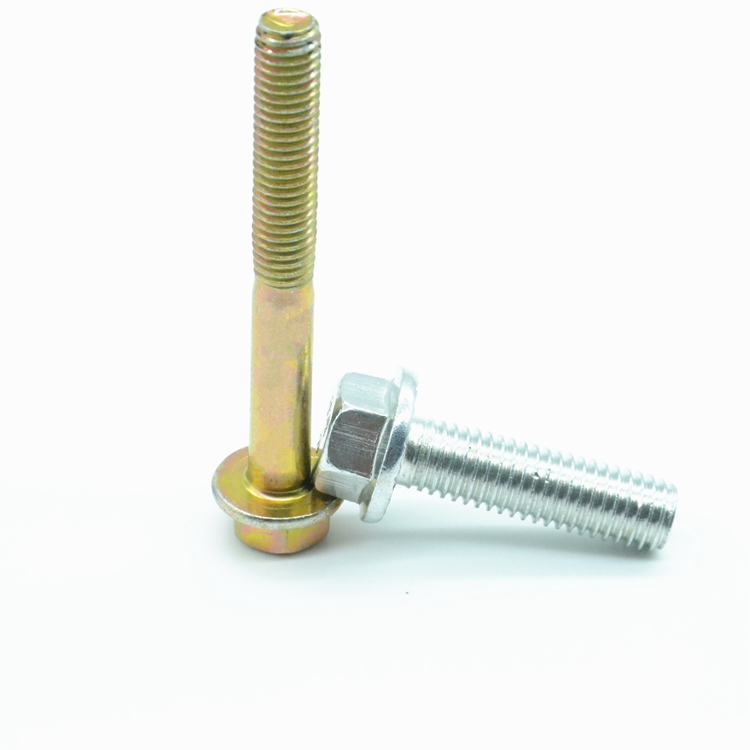High-Quality Axle Nuts Manufacturer | Durable and Reliable Axle Nut Solutions
Sep . 11, 2024 15:31 Back to list
High-Quality Axle Nuts Manufacturer | Durable and Reliable Axle Nut Solutions
The Importance of Axle Nuts in Automotive Manufacturing
Axle nuts are an often overlooked but critical component in the automotive industry. These nuts, which secure the wheel assembly to the axle, play a vital role in ensuring the safety and performance of a vehicle. The manufacturing of axle nuts has evolved over the years, driven by advancements in technology, materials, and industry standards.
Understanding Axle Nuts
Axle nuts are typically made from high-strength materials such as steel or high-grade alloys, designed to withstand the significant forces and stresses that occur during vehicle operation. Their primary function is to hold the wheel in place, ensuring that it remains securely attached to the axle. This not only affects a vehicle's performance but also has significant safety implications. A loose or improperly secured wheel can lead to catastrophic failures, including wheel detachment, which poses a serious hazard to drivers and passengers alike.
Manufacturing Process
The manufacturing process of axle nuts is meticulous and requires precision. It usually begins with the selection of raw materials, which are then subjected to various processes such as forging, machining, and heat treatment. Forging helps create a strong and durable structure, while machining ensures the thread and surfaces are finely crafted for a perfect fit. Heat treatment enhances the strength and resilience of the nuts, making them capable of enduring higher loads and thermal stresses.
Automation has significantly enhanced the efficiency and accuracy of axle nut production. Modern factories utilize advanced machinery equipped with computer numerical control (CNC) technology, which allows for precise shaping and cutting of the nuts. This level of automation not only improves production speed but also reduces the likelihood of human error, resulting in consistently high-quality products.
axle nuts factory

Quality Control
In the axle nuts factory, quality control is paramount. After manufacturing, each batch undergoes rigorous testing to ensure it meets industry standards for strength, durability, and resistance to wear and corrosion. Tests may include tensile strength evaluations, dimensional checks, and surface inspections. Certifications from relevant automotive safety organizations are also essential, as they reassure manufacturers and consumers about the reliability of the components they are using.
Environmental Considerations
As with many manufacturing industries, environmental considerations are increasingly important. Factories are now implementing sustainable practices, such as recycling scrap materials and reducing waste in the manufacturing process. Additionally, the use of eco-friendly lubricants and surface treatments contributes to a minimized environmental impact. These efforts are designed to comply with stricter regulations and to appeal to a growing base of environmentally conscious consumers.
Conclusion
In summary, axle nuts, while small in size, are critical components in the automotive industry that ensure the safety and reliability of vehicles. Their manufacturing involves a complex interplay of materials science, engineering, and modern technology. As producers strive to meet high standards of quality and sustainability, the future of axle nut manufacturing looks promising. By continuing to innovate and improve, factories can ensure that these essential components not only meet the demands of today's automotive landscape but also contribute positively to the environment and society as a whole. In an industry where safety is non-negotiable, the importance of high-quality axle nuts cannot be overstated.
Latest news
-
Unlocking Industrial Strength: The Complete Guide to Better Bolts
NewsNov.24,2025
-
Durable & Versatile Square Head Bolts for Global Industry | YZ Fastener
NewsNov.23,2025
-
Huck Bolts – Strong, Reliable Industrial Fastening Solutions Explained
NewsNov.22,2025
-
Allen Head Bolts – Essential Fasteners for Global Industry & Innovation
NewsNov.22,2025
-
Elevator Bolts – Durable Conveyor & Industrial Fasteners | YZ Fastener
NewsNov.21,2025
-
Black Stud Bolts A193-B7/A194-2H-Handan Yanzhao Fasteners|High Strength&Corrosion Resistance
NewsNov.21,2025
